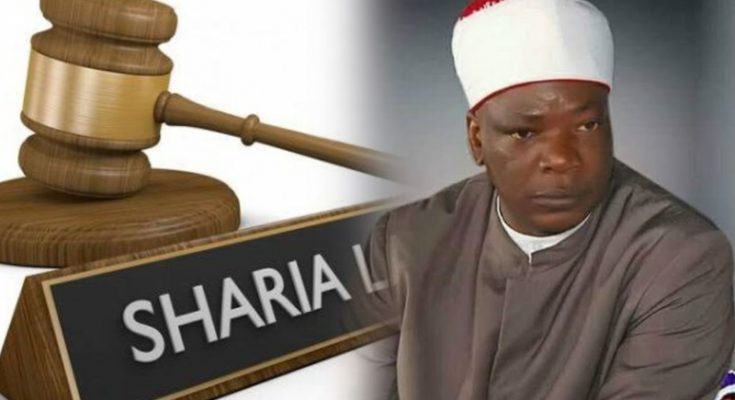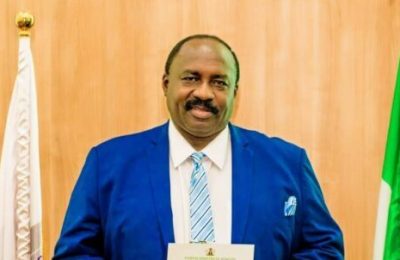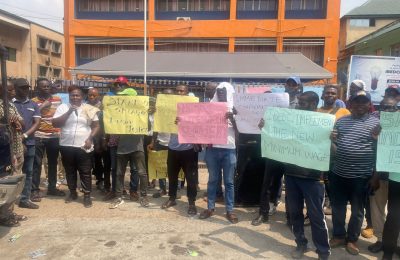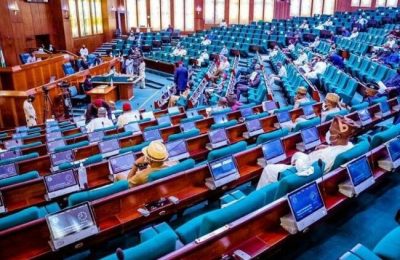
Sheikh Muhammad Habbibullah Adam Abdullah El-Ilory, Director of the Arabic and Islamic Training Centre (Markaz) and Founder of Markaz University College, has strongly criticised renewed calls for establishing Shari’a courts in parts of Yorubaland.
The Islamic scholar stated that these demands, which have sparked debate within and beyond the Muslim community, are driven by self-interest and political motives rather than genuine religious concerns.

Tribune Online reports that some netizens also took to social media, reacting differently to the news of the planned inauguration of a Sharia Court in Oyo State. This came after a flyer went viral on social media announcing plans by the Supreme Council for Shari’ah in Nigeria, Oyo State chapter, to inaugurate a Sharia Court in Oyo town and its environs in January 2025.
While some expressed support for the announcement, others strongly criticised it.
In an interview, the Markaz Director emphasised that Shari’a has always been a part of the lives of Muslims in Yorubaland, even before the arrival of colonial rulers, and continues to be practised within the framework of existing Customary Courts. He questioned the motives behind the renewed agitations, arguing that they are not rooted in sincere Islamic practice but rather in personal and political ambitions.
Sheikh El-Ilory pointed out that Shari’a was in practice among Yoruba Muslims long before the arrival of British colonialists. However, due to the religious diversity of the South West—where Islam, Christianity, and traditional religions coexist—the Constitution did not formally acknowledge Shari’a for the region as it did for the North.
Instead, he explained, Customary Courts were established to cater to the religious and cultural needs of various groups, with representatives from Islam, Christianity, and traditional beliefs adjudicating cases based on their respective doctrines.
“Despite not being explicitly recognised in the Constitution, Shari’a governs various aspects of our lives, from marriage and inheritance to naming and burial ceremonies,” Sheikh El-Ilory explained. He noted that Ilorin, which historically straddles the North and South West, has continued to operate Shari’a courts due to its unique position, he added.
While acknowledging that the call for Shari’a is not new, Sheikh El-Ilory recalled that a similar push occurred in 1978 during the drafting of Nigeria’s Constitution ahead of the Second Republic. At that time, according to the scholar, Chief M.K.O. Abiola advocated for Shari’a to be included in the Constitution, but his efforts were questioned by prominent scholars, including Sheikh Adam Abdullah El-Ilory.
“Sheikh Adam asked M.K.O. Abiola: ‘Have you been prevented from practising your religion? Has anyone stopped you from conducting marriages, burials, or inheritance according to Islamic law?’ When Abiola answered in the negative, the agitations were abandoned,” he recounted.
Sheikh El-Ilory believed that today’s push for Shari’a in Yorubaland is not a religious necessity but a means for certain individuals to gain political influence. “Some people are using Shari’a as a tool to sideline respected indigenous Muslim leaders and take over the leadership of Islam in Yorubaland, particularly in the Robita,” he said.
The scholar noted that several South West states, including Lagos, Oyo, Ogun, and Ondo, have outrightly rejected the establishment of Shari’a courts, emphasising that Muslims in these states already practise Shari’a in their daily lives without government interference.
“When Ogun State refused to approve Shari’a courts, some questioned whether indigenous Muslims exist there. But the reality is that Yoruba Muslims have long intermarried, conducted naming ceremonies, and buried their dead in accordance with Islamic law. If these do not align with Shari’a, then what exactly do they mean by Shari’a?” he asked.
Sheikh El-Ilory also dismissed claims that Nigeria is a secular state, clarifying that the country is instead a multi-religious society where no single religion is given preference in governance. He traced the origin of secularism to medieval Europe, where the Catholic Church once wielded excessive power over state affairs before the rise of scientific reasoning diminished its influence.
Mudir Markaz firmly stated that the push for Shari’a in Yorubaland is unnecessary and could potentially cause division.
“Are we already practising Shari’a or not? We are. So why demand it now? It could create a crisis when no one is stopping us from living according to Islamic principles,” he warned.
He urged the Muslim community to focus on unity and true Islamic scholarship rather than political manoeuvring disguised as religious advocacy.
“Not everyone who identifies as a Muslim scholar truly understands Islam. Attending MSSN programmes or being a committed Muslim does not automatically make one an authority in Shari’a,” he noted.








